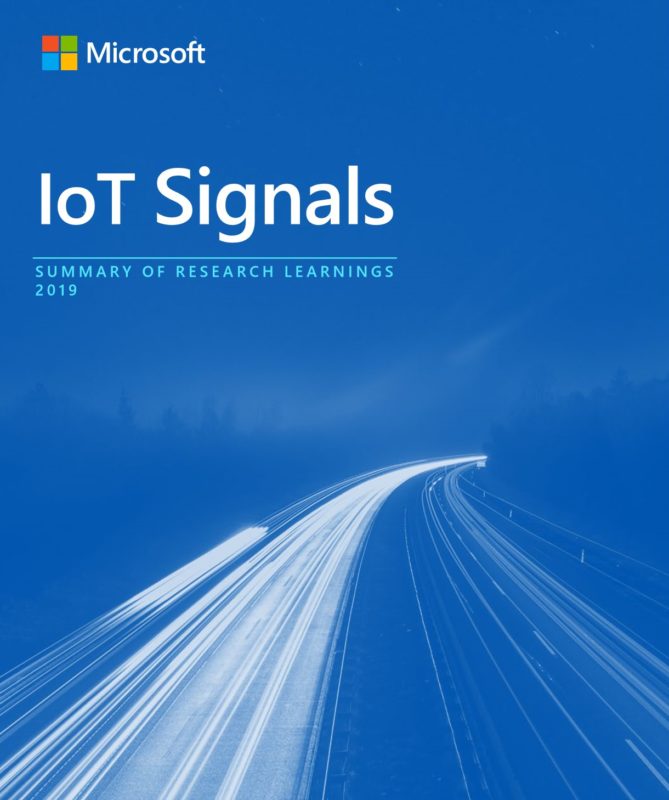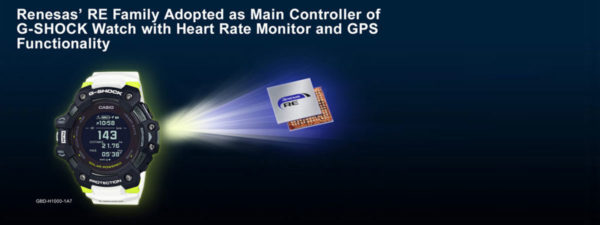Microsoft Corp. announced this week IoT Signals, its research report designed to provide a global overview of the IoT landscape. Microsoft surveyed over 3,000 IoT decision-makers in enterprise organizations in order to give the industry a holistic, market-level view of the IoT ecosystem, including adoption rates, related technology trends, challenges, and benefits of IoT.
The report indicates that IoT adoption is growing rapidly, and respondents believe 30 percent of their company’s revenue two years from now will be due to IoT. Yet, the industry faces a significant IoT skills gap, as well as complexity and security challenges that may compromise business benefits to IoT if not addressed.
While 88 percent of companies credit IoT as critical to their success, it is one of a series of catalytic innovations that are creating connected businesses: cloud, IoT, edge computing, Artificial Intelligence (AI) and mixed reality.
Connected endpoints across sales, products, and physical assets give leaders unprecedented visibility into their businesses and new insights into how to optimize operational efficiency, innovate, increase workplace safety, save energy, and more.

IoT Signals revealed that 85 percent of respondents are in IoT adoption, and three-fourths of these have IoT projects in planning. Among IoT adopters, 88 percent believe IoT is critical to business success; IoT adopters believe they will see a 30 percent return on investment (ROI), inclusive of cost savings and efficiencies, two years from now. Nearly all IoT adopters — 97 percent — have security concerns when implementing IoT, but this is not hindering adoption.
Further, 38 percent of IoT adopters cite complexity and technical challenges to using IoT as a barrier to furthering their IoT adoption. Lack of talent and training present challenges for half of IoT adopters, and 47 percent say there are not enough available skilled workers. Respondents believe critical technology drivers for IoT success in the next two years are AI, edge computing and 5G, with nearly one-third of projects (30 percent) fail in the proof-of-concept stage, often because implementation is expensive or bottom-line benefits are unclear.
The proliferation of IoT devices is enabling companies to bring cloud intelligence to the edge, to create solutions that are adaptive and responsive to their environments.
“According to IDC’s Worldwide Global DataSphere IoT Devices and Data Forecast, IDC expects there to be 41.6 billion connected IoT devices by 2025 — growing at a rate of 8.9 percent over the forecast period,” said Carrie MacGillivray, group vice president, IoT, 5G and Mobility at IDC. “As the market continues to mature, IoT increasingly becomes the fabric enabling the exchange of information from ‘things’ to people and processes. Data becomes the common denominator — as it is captured, processed, and used from the nearest and farthest edges of the network to create value for industries, governments, and individuals’ lives.”
Across industries, global and enterprise customers including Starbucks, Chevron, Bühler AG, Steelcase, thyssenkrupp and more are transforming their business with IoT and intelligent edge solutions. In partnership with BCG Group, Microsoft identified seven key ingredients for success in IoT: business strategy, leadership and organization, a technology roadmap, talent, operations and core business processes, partnerships, and security.
To further advance customer and partner success, Microsoft is investing $5 billion in IoT and intelligent edge technologies and ecosystem by 2022. In just the past year, Microsoft has added over 100 new features and services and released 70 new IoT partner announcements, and has an ecosystem of over ten thousand IoT and intelligent edge partners to help customers, no matter where they are on their IoT journey.
“IoT is transforming businesses in every industry and is powering breakthrough innovations,” said Sam George, head of Azure IoT. “Our research shows that unlocking IoT’s full potential requires the industry to address key challenges like the skills shortage, security concerns and solution complexity. Microsoft is leading the way on simplifying and securing IoT so that every business on the planet can benefit.”
Microsoft commissioned Hypothesis Group, an insights, design, and strategy agency, to execute the IoT Signals research. A 20-minute online survey was conducted with over 3,000 decision makers at enterprise companies across the US, UK, Germany, France, China, and Japan who were currently involved in IoT. The research included business decision makers (BDMs), IT decision makers (ITDMs), and developers from a range of industries such as manufacturing, retail/wholesale, government, transportation and healthcare.




